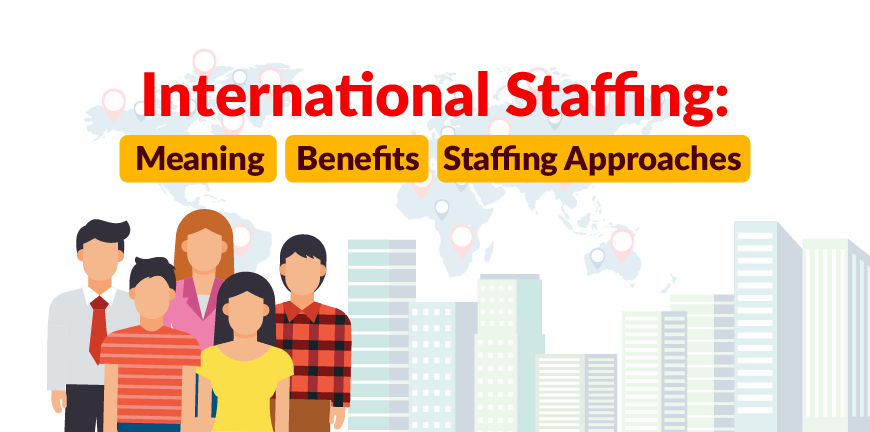
Breaking Stereotypes: India Inc. accelerating LGBTQ Inclusion
02/06/2025
Employee Compensation Plan – A Complete Guide for Employers
02/06/2025- How to Bridge the Communication Gap Between Japanese Teams and Global Operations?
- How Japan’s Labour Shortage Can Be Tackled with Skilled Bilingual Professionals?
- How Japanese Companies Can Leverage India’s Strong Technical and Educational Talent Pool?
- How to Enhance Cross-Cultural Collaboration for Global Business Expansion?
- Top 5 Industries in Japan Hiring Japanese-Speaking Indians
- How ALP Consulting Helps Build Careers for Indians in Japan?
- Frequently Asked Questions
Japan has become a career epicentre for professionals seeking a career abroad, overtaking other developed countries like the USA, the UK, Germany, etc. The main reason behind this transition is the high employment opportunities for foreign professionals in Japan and the reluctance of professionals, especially from India, to move to countries like the USA, Germany, Canada, etc., which are not that welcoming to immigrants and provide limited visa extensions.
However, Japanese companies are currently looking to recruit Indian professionals with bilingual professionals from India for numerous sectors to compensate for labour shortages and drive economic growth without disruptions. Let’s discuss in-depth the top 5 Industries in Japan that are interested in hiring Japanese-speaking Indian professionals for various job positions.
How to Bridge the Communication Gap Between Japanese Teams and Global Operations?
Although Japanese companies are at the forefront of business collaborations across the globe, their communication channels, especially with non-Japanese-speaking clients, need to be managed more effectively.
Professionals with strong bilingual fluency (English and Japanese) and cultural acumen may be the smartest way to bridge the communication gap between Japanese companies and their global counterparts. Based on their skills, cultural similarities, working style, and learning potential, Indians who speak Japanese may be the perfect fit for job roles that require bilingual communication.
Here are 5 ways we can bridge the communication gap between Japanese teams and global operations through Japanese-speaking Indian professionals.
1. Bilingual Project Coordinators
Appoint Japanese-speaking Indian professionals as project liaisons to translate, interpret, and align goals between Japanese and global teams for smoother collaboration and reduced communication gaps.
2. Cultural Integration Training
Leverage Japanese-speaking Indians to conduct cross-cultural training, helping global teams understand Japanese work culture, etiquette, and communication styles to foster mutual respect and increase operational efficiency.
3. Real-Time Interpretation Support
Deploy bilingual Indians for live interpretation during meetings and calls, enabling real-time understanding and quicker decision-making across language barriers.
4. Localized Documentation
Use Japanese-speaking Indians to understand and translate key documents, emails, and SOPs, ensuring both Japanese and international teams have clear, consistent formal and informal communication.
5. Feedback Loop Facilitation
Position bilingual Indians to gather, interpret, and relay feedback between teams, helping resolve internal conflicts, align expectations, and foster a transparent communication environment.
How Japan’s Labour Shortage Can Be Tackled with Skilled Bilingual Professionals?
The ageing workforce, declining birth rates, and tough immigration policies have led to severe labour shortages across all industries in Japan in both the private and public sectors. By 2035, Japan is expected to have a workforce shortfall of nearly 3.84 million workers across various domains, which can be catastrophic if not dealt with immediately.
Talented and enthusiastic Indian professionals with Japanese language proficiency offer a strategic and cost-effective solution, bringing technical expertise, work ethics, a hardworking nature, and cultural adaptability.
The bilingual skills of Indian professionals enable seamless integration, making them ideal candidates to support Japan’s evolving labour market needs. Here are 5 ways how the labour shortage in Japan can be tackled more smartly through the support of Indian bilingual professionals:
1. Filling Workforce Gaps
Bilingual talents from India can quickly fill out both entry-level and managerial roles in different sectors like IT, healthcare, hospitality, manufacturing, etc. As there is no language barrier, these talents can easily adapt to the working environment in a short time, ensuring business continuity.
2. Seamless Cross-Cultural Collaboration
Indian professionals who speak fluent Japanese foster smooth communication between internal Japanese teams and their global counterparts, improving productivity and reducing miscommunication instances within the work environment.
3. Supporting Digital Transformation
As we know, Indian professionals are extremely good with technology and software domains. Combined with bilingual language skills, they can contribute to Japan’s digitalization goals, enabling the smoother implementation of IT systems and processes within local business contexts.
4. Strengthening Service Industries
In hospitality and retail, bilingual Indian professionals elevate the customer experience by offering seamless services for both Japanese and international clients, supporting Japan’s tourism and service sector growth.
5. Driving Global Business Expansion
Japanese-speaking Indians help Japanese companies expand internationally by managing overseas communications, translating strategies, and aligning global operations with Japanese business mission and vision statements.
How Japanese Companies Can Leverage India’s Strong Technical and Educational Talent Pool?
Here are 4 ways Japanese companies can leverage a strong Indian talent pool to bridge their talent gaps:
1. R&D and Development
Forge a strong collaboration with Indian firms that are into scientific research, software engineering, AI, and ML development, etc. Identify talents and ensure they undergo Japanese language training and then onboard them to collaborate with in-house teams.
2. Hire Bilingual Indian Engineers
Recruit Indian professionals fluent in Japanese directly to work in Japanese companies to bridge technical communication gaps, ensuring smooth project execution and cultural alignment with Japanese teams.
3. Collaborate with Indian Universities
Partner with top Indian institutions for internships, joint research, and training programs, building a pipeline of job-ready engineers and innovators who are willing to relocate and start a career in Japan.
4. Promote Skill-Based Exchange Programs
Initiate exchange programs that allow Indian tech professionals to work in Japan, transferring skills, fostering innovation, and addressing Japan’s talent shortage effectively.
How to Enhance Cross-Cultural Collaboration for Global Business Expansion?
1. Acting as Cultural Interpreters, Not Just Translators
Indian bilingual talents go beyond literal translation by interpreting tone, business etiquette, and unspoken cultural cues, ensuring both Japanese and global teams understand the true intent and objectives behind communication.
2. Driving Cultural Integration Workshops
Bilingual Indian employees can be the fulcrum of cross-cultural training sessions, helping global teams understand Japanese work culture, ethical practices, hierarchy, and communication styles, which are crucial for building trust and long-term relationships.
3. Supporting Client and Vendor Relationships
Indian bilingual professionals can represent multinational companies in meetings with Japanese clients and vendors, aligning expectations, improving negotiations, and maintaining business etiquette rooted in Japanese customs.
4. Building Collaborative Teams
By mediating differences in work culture and approach, Indian bilinguals help create cohesive, high-performing multicultural teams that combine Japanese precision with global agility.
5. Enabling Agile Project Execution
Their ability to translate both language and context allows bilingual professionals to align global strategies with local execution, ensuring projects are delivered efficiently with higher precision and speed.
Top 5 Industries in Japan Hiring Japanese-Speaking Indians
1. Information Technology (IT) & Software
Currently, Japanese companies require nearly 2.5 lakhs of AI and data professionals annually to drive their IT growth objectives. Among all foreign nations, Indian techies are the best fit since they offer higher expertise at competitive salary packages, and the number of Indian IT professionals seeking a career in Japan is also very high.
Japanese-speaking Indian IT professionals bridge technical and linguistic gaps, enabling smoother communication in both domestic and international projects. Their expertise in software development, system integration, AI, ML, data analysis, and IT support helps Japanese firms innovate faster while maintaining alignment with international teams and clients, accelerating Japan’s digital transformation journey.
2. Automotive & Manufacturing
Japan needs nearly 11 million workers to fill talent gaps in the automotive sector. In their precision-driven automotive sector, Indian engineers with Japanese proficiency streamline collaboration between global design centres and local production teams. Their dual capabilities help in R&D, process automation, and supplier coordination, ensuring efficiency, innovation, and quality in manufacturing operations.
As Japan has numerous vehicle manufacturing units spread across India, hiring bilingual Indian professionals can help to further strengthen relationships between India and Japan.
3. Healthcare & Pharmaceuticals
Indian healthcare, biotech, and pharma experts with Japanese skills can make a huge difference in Japan’s struggling healthcare and pharma sector, with labour shortages. Their presence eases communication between global healthcare & pharma companies and Japanese counterparts, fostering faster approvals, localized innovation, and improved healthcare delivery within Japan’s ageing population that requires out and in-patient care.
4. Finance & Banking
Japanese-fluent Indian professionals contribute to data analysis, compliance, and IT transformation within Japan’s financial sector. Their fintech expertise and bilingual abilities facilitate seamless collaboration between Japanese institutions and overseas stakeholders, enhancing operational efficiency and global competitiveness.
5. Hospitality & Tourism
With rising tourism in Japan, bilingual Indian professionals enhance guest experiences in hotels, cruises, and travel services. Their ability to communicate with both Japanese teams and international visitors bridges cultural gaps, enhances customer satisfaction, and supports Japan’s vision of becoming a top global tourist destination.
How ALP Consulting Helps Build Careers for Indians in Japan?
As we discussed earlier, the labour shortage in Japan is creating a lot of hurdles for its growth initiatives. To combat this escalating issue, Japan is looking at large-scale hiring of foreign professionals, especially from India.
Additionally, Indian professionals with bilingual talent are in remarkably high demand in Japan for both executive and leadership roles. This is a great time for Indian professionals to break the shackles and make their dream of settling abroad come true.
ALP Consulting, a leading HR services and solutions provider in India with over 1000 Japanese clients, can help aspiring Indian professionals to build a lucrative career in Japan. Whether you are a bilingual professional seeking a career in Japan or a candidate with technical and managerial experience interested in learning Japanese, ALP offers a customised career development program based on your needs and career aspirations.
The steps involved in the ALP’s career development program in Japan include:
1. Internship Program
After graduation and clearing the N4 level JLPT (Japanese Language Proficiency Test), a candidate will be offered an internship program for about 4-6 months in India to get some exposure to the Japanese language and work culture.
2. N3 level JLPT Support
We will help candidates clear the N3 level JLPT in-house, which ensures Japanese language proficiency is at a professional level.
3. Job interviews with Japanese Clients
After the internship and N3 level certification are completed, a candidate will be provided an interview opportunity with our Japanese clients.
4. Advanced Japanese Language and Cultural Training
Once the candidate gets selected for our Japanese client, he must undergo N2-level and Japanese culture training. The visa period of 2-3 months will be utilised for this training module.
5. Visa and Onboarding Assistance
We will offer visa assistance and onboarding support to help selected candidate make a smooth transition towards their dream career in Japan.
Frequently Asked Questions
1. How does ALP Consulting support Indian professionals aiming to build careers in Japan?
ALP offers language training, internships, job interviews, cultural orientation, and visa support for a smooth career transition to Japan.
2. Does ALP Consulting provide Japanese language training?
Yes, ALP offers in-house training to help candidates clear N3 and N2 levels of the JLPT certification.
3. Will ALP Consulting help with job interviews in Japan?
Yes, once candidates complete training, ALP arranges job interviews with its Japanese clients across various industries.
4. Is cultural training part of the program before moving to Japan?
Absolutely. ALP provides cultural and advanced language training during the visa processing period for smoother integration in Japan.
5. What makes Japanese-speaking Indian professionals valuable to companies in Japan?
They bridge cultural and communication gaps, ensuring smooth collaboration, efficient project execution, and alignment with Japan’s global business objectives.
Contact Us For Business Enquiry

Kishore V N
Kishore V N is the Managing Director at ALP Consulting, bringing over 29 years of extensive experience in global recruitment, talent strategy, and workforce solutions. He has been instrumental in building scalable RPO, MSP, and modular talent sourcing models that empower organizations with a competitive edge in talent acquisition. Kishore’s leadership focuses on expanding ALP’s global presence, driving innovation in recruitment technology, and enhancing operational excellence. He also serves as Director at Datacore Technologies, steering digital HR transformation through advanced HRMS and virtual staffing solutions.




